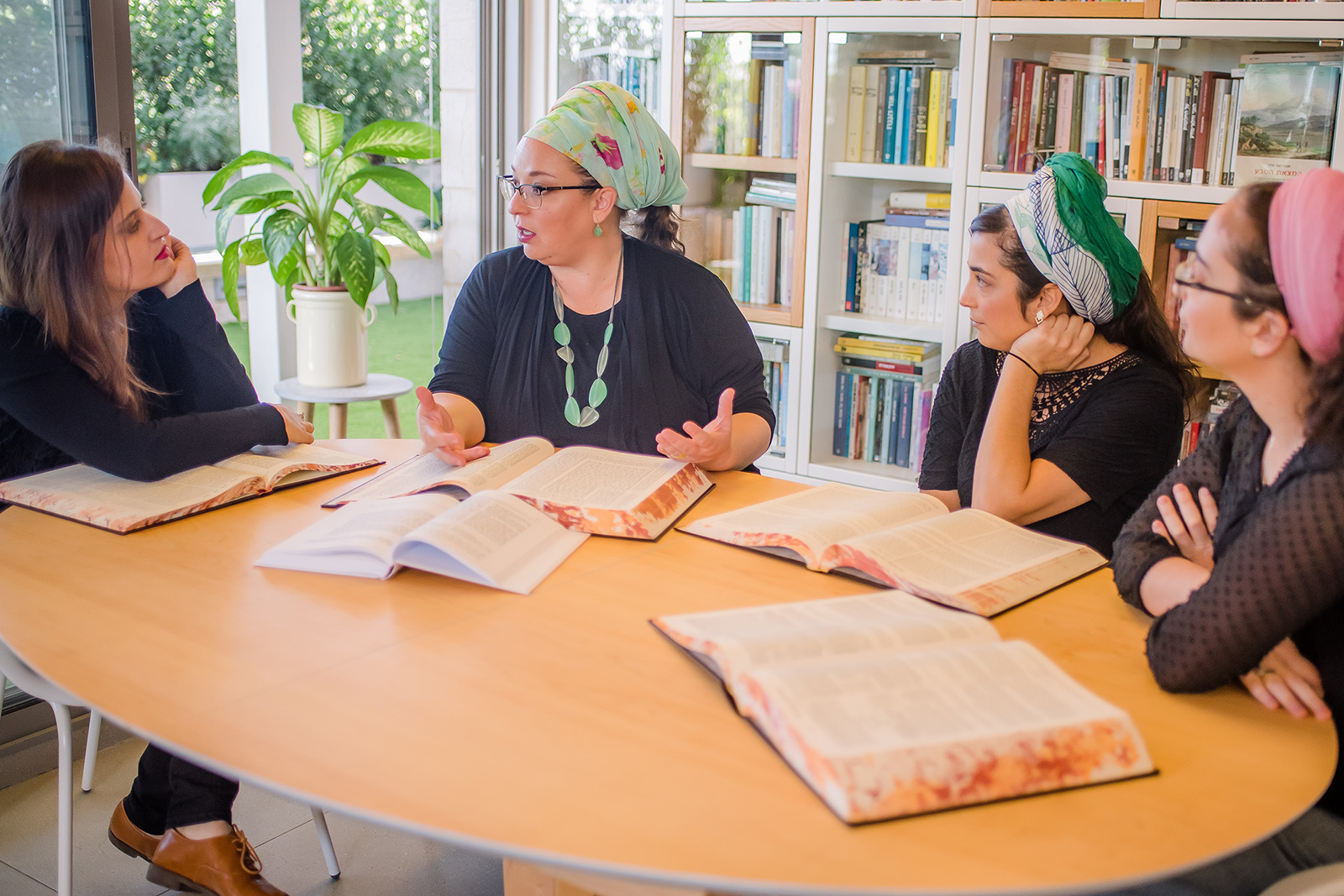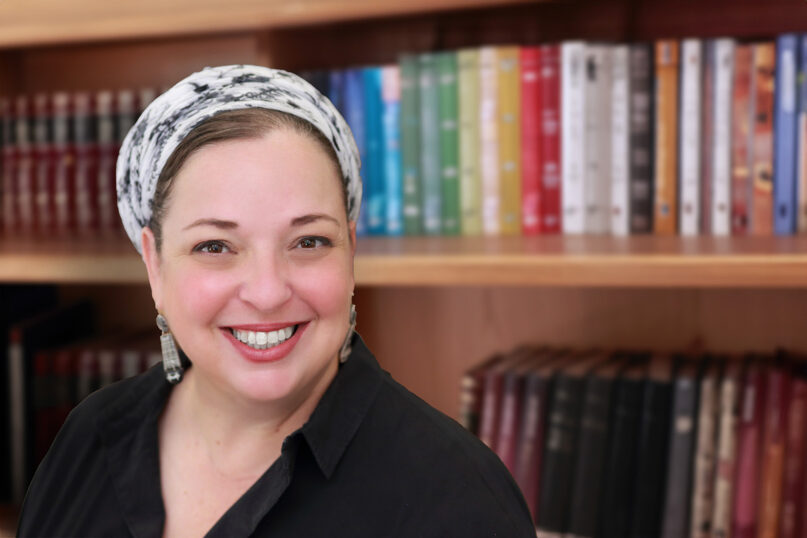
JERUSALEM (RNS) — In 2019, Sarah Segal-Katz was one of six Orthodox Jewish women who petitioned Israel’s High Court of Justice for the right to take the same accreditation exams the Chief Rabbinate offers men. After years of refusals, rebuttals and delays by the rabbinate, the court ruled unanimously in the women’s favor on July 14.
“I’m really happy. I never thought it would happen in my lifetime. Now I can set a new path. Now I can dream,” she told RNS this week, on the heels of the court decision.
The rabbinate offers many exams related to Jewish law, and those who pass them receive the certification needed to assume various religion-related roles in the public sector and, often, a salary boost. The ruling, however, does not force the Orthodox rabbinate to ordain women as rabbis.
While women continue to face gender-based challenges in pursuing religious careers in the country, Segal-Katz and other advocates said the ruling is impactful in terms of career opportunities and how women are recognized for religious expertise.

Rabbi Seth Farber. (Photo by Dudu Yitzchaki)
“Until now, there has been no official recognition of their achievement in Torah learning, and no way of getting accreditation to manifest their achievement,” said Rabbi Seth Farber, whose ITIM organization, along with the Rackman Center for the Advancement of the Status of Women and Kolech: Religious Women’s Forum, filed the case. “The court ruling changes this.”
In 2016, at the behest of ultra-Orthodox lawmakers, the Israeli government passed legislation that equated rabbinical accreditation with a secular university bachelor’s degree. That accreditation opportunity — afforded only to men — “created a critical differentiation between rabbinical ordination and the rabbinical accreditation exams” and opened the way for the lawsuit, Farber said. “You can get the career benefits by just passing the exams” even if those who pass are never ordained as rabbis.
Farber said the goal of the lawsuit was to equalize pay and offer opportunities to female experts in Jewish law.
“At the moment, we’re interested in women getting the economic benefits and professional recognition,” Farber said. Ordination via the rabbinate, the only government-recognized Jewish authority in Israel, “isn’t on the table for us right now,” he added.
The issue of ordaining women as Orthodox rabbis is divisive within the mainstream Orthodox community, despite many strides modern Orthodox women have made in high-level Jewish learning. The Chief Rabbinate, which is largely ultra-Orthodox in its practices and worldview, rejects the notion that women can be rabbis.
Rabbi Kenneth Brander, president and yeshiva head of the International Ohr Torah network, a modern Orthodox Jewish learning and leadership organization, said the network’s full-time women’s Torah learning program, the Susi Bradfield Women’s Institute of Halakhic Leadership, teaches the same core curriculum as the best men’s seminaries, known as kollels.
“The women in our program study for five years, they take the equivalent accreditation exams within the program, at the very same level,” he said. “But they haven’t been able to become Orthodox chaplains at government hospitals or even in a prison because they haven’t passed the rabbinate’s exams.”
The same has been true for religion-related positions in the Israel Defense Forces, even though non-Orthodox women are conscripted and an increasing number of Orthodox women are serving, including in combat units.

Rabbanit Sarah Segal-Katz. (Photo by Tamar Kinnereti)
Rabbanit Segal-Katz, who was recently ordained at Yeshivat Maharat — the first yeshiva to ordain women as Orthodox clergy, in New York’s Bronx borough — said one of her dreams is to head the rabbinate department that oversees mikvahs, or ritual baths, around Israel. Jewish women are required by Jewish law to immerse themselves in a mikvah after menstruating or giving birth and before having sexual relations with their husbands. She is also interested in a rabbinical-type hospital position, said Segal-Katz, who previously studied at two other women’s institutes.
Upon graduation from a women’s learning institute, female Jewish scholars are at a financial disadvantage compared with their male counterparts.
“We have to study in a private institution, while men study in a kollel and receive government stipends,” said Segal-Katz, who currently resides in Riverdale, New York, but plans to return to Israel in a few years. “That doesn’t exist for women.”
Michelle Shelemay Dvir, a third-year student at the Bradfield Institute, headquartered in Jerusalem, said that in addition to a much wider selection of job opportunities that will be open to her once she passes the accreditation exams in two to three years, taking the same exams as male students “puts to bed all of those doubts and skepticisms from others.” Once men and women take the same exam and meet the same standards, “every community can decide for themselves what kind of teacher or leadership model they want,” she said.
In addition to career opportunities, Avigayil Unterberg Nouriel, who graduated from the Bradfield Institute a year ago, said she believes rabbinate accreditation will provide women who are experts in Jewish law the respect they have earned.
“It sounds almost cliche, but I feel seen,” she said. “I feel recognized. During the entire five years that I was in this program, I would tell people what I was doing and they would be confused at best or dismissive at worst — as if I was doing a cute little thing on the side.”
Now, she said, there will be a framework for women who spend “years and years” intensively studying Jewish law to have the learning and expertise they’ve achieved recognized.
While many in the modern Orthodox community are hailing the court ruling as a victory, some still believe that as long as the Chief Rabbinate exists as the sole state-recognized religious authority, there can be no real parity between men and women. But Segal-Katz sees things differently.
“Some are saying, ‘What are you doing, cooperating with the patriarchy?'” she said. “My response: We don’t want to ruin the house. We don’t hate the master. It’s a partnership, not a war. The Torah belongs to all of us.”


